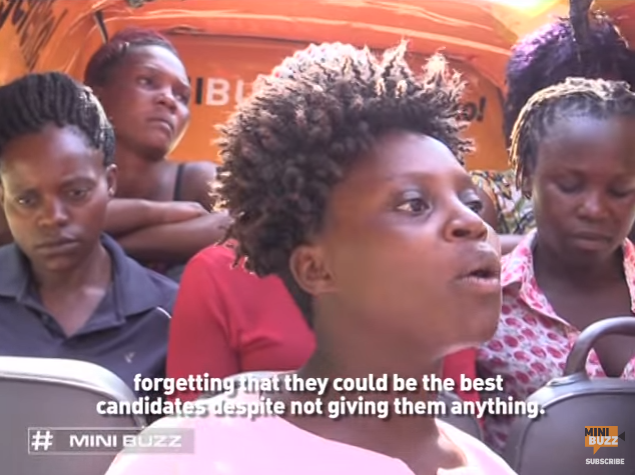If you want to know what’s happening, sometimes the best thing to do is ask someone on the street.
From late night TV to local news interviews, unscripted question-and-answers with passers-by usually makes for compelling viewing. Uganda is no different. IRI recently partnered with MIATV to produce a 12 episode series of the popular “Minibuzz” television program to explore women’s participation in electoral and political processes. On Africa Day, we thought it would be great to show you how IRI and our partners in Uganda are engaging citizens in important discussions about issues facing their democracy.
How women are affected by voter bribery
For this episode, the “Minibuzz” hosts invited citizens from Kalagi, northeast of Kampala, to climb in the mobile mini-bus (get it? It’s a pun!) studio and discuss the widespread practice of voter bribery. Candidates often hand out small sums of money or goods during their rallies to build support and ensure that attendees remember them on Election Day. As the show’s passengers explain, although common, this practice reflects poorly on Ugandan democracy, and is particularly harmful to women.
IRI’s partnership with MIATV was made possible with support from UN Women, the Embassy of Sweden, and USAID via the Consortium for Electoral and Political Process Strengthening. Since 2002, IRI has supported a variety of women’s programming in Uganda to address the inequalities in their formal political participation, and to push back against prevailing social attitudes claiming women aren’t suited for political life. In preparation for the February 18 elections, IRI supported the development and publication of the National Women’s Manifesto, hosted a series of workshops to help women campaigning for office strengthen their campaigns, and organized a series of events to provide these women a public platform to present their qualifications and ideas to their constituents.
